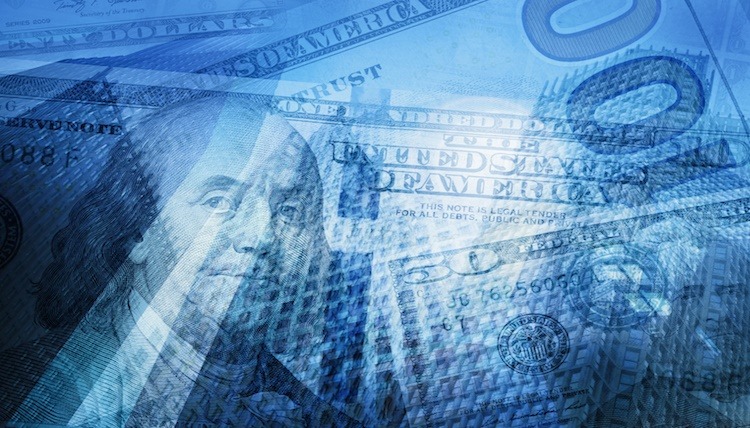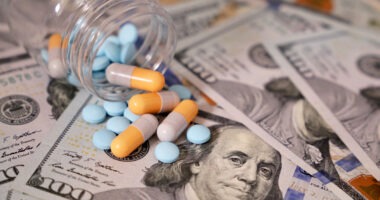Pharma and The Fortune 500: Where Do Companies Rank?
Fortune released its annual list of the Fortune 500 companies, which rank the companies in the US with the largest revenues. So how did pharmaceutical companies and suppliers score in the 2017 rankings?
Johnson & Johnson, the pharmaceutical, consumer-products, and medical-device company, was the US pharmaceutical company ranked the highest at number 37 with Pfizer and Merck & Co. also in the Top 100. So what other companies made the mark? DCAT Value Chain Insights examines the rankings.
Inside the Fortune 500
The Fortune 500, Fortune’s ranking of the top US-based companies based on revenues shows that the US retailer, Walmart, again leads the list for 2017 revenues, making it the sixth straight year in a row that it has topped the Fortune 500 (see Table I ). With more than $500 billion in revenues, Walmart had more than double the revenues of the Number 2 and Number 3 companies, ExxonMobil and Berkshire Hathaway. Apple, the most valuable and profitable company on the list—$850 billion in market capitalization and $48 billion in profits—dropped one spot to Number 4 on the revenue ranking. Amazon made the Top 10 list for the first time at Number 8 (1).
Four of the Top 15 companies on the 2017 edition of the Fortune 500 were related to healthcare (see Table I ). The health insurer, UnitedHealth Group, ranked fifth and CVS Health, a retail pharmacy and healthcare company, ranked seventh. The three large US drug wholesalers—McKesson (Number 6), Americansource Bergen (Number 12), and Cardinal Health (Number 14)— ranked among the top 15 companies of the 2017 Fortune 500.
In total, Fortune 500 companies represent two-thirds of the US gross domestic product with $12.8 trillion in revenues, $1.0 trillion in profits, $21.6 trillion in market value, and employ 28.2 million people worldwide. For purposes of the list, companies are ranked by total revenues for their respective fiscal years and include the companies that are incorporated in the US and operate in the US and file financial statements with a government agency, including private companies and cooperatives. The threshold for making this year’s list was $5.4 billion in revenues, up 6% from last year (1).
| Table I: The Top 15 Companies of the Fortune 500 (based on 2017 revenues)* | ||
| Ranking | Company | 2017 revenues (in billions) |
| 1 | Walmart | $500.3 B |
| 2 | ExxonMobil | $244.4 B |
| 3 | Berkshire Hathaway | $242.1 B |
| 4 | Apple | $229.2 B |
| 5 | UnitedHealth Group | $201.2 B |
| 6 | McKesson | $198.5 B |
| 7 | CVS Health | $184.8 B |
| 8 | Amazon | $177.9 B |
| 9 | AT&T | $160.5 B |
| 10 | General Motors | $157.3 B |
| 11 | Ford Motor | $156.8 B |
| 12 | AmericansourceBergen | $153.1 B |
| 13 | Chevron | $134.5 B |
| 14 | Cardinal Health | $130.0 B |
| 15 | Costco | $129.0 B |
B is billions. Numbers are rounded.
For purposes of the list, companies are ranked by total revenues for their respective fiscal years and include the companies that are incorporated in the US and operate in the US and file financial statements with a government agency, including private companies and cooperatives.
Source: Fortune
The Fortune 500 and Pharma
In looking at how pharmaceutical companies fared in the 2017 Fortune 500, three companies—Johnson & Johnson (J&J) (Number 37), Pfizer (Number 57), and Merck & Co. (Number 78) made the Top 100 (see Table II ).
AbbVie, Gilead Sciences, Eli Lilly and Company, Amgen, and Bristol-Myers Squibb were ranked among the Top 200 companies in the Fortune 500 for 2017. Celgene, Biogen, Baxter, and Regeneron Pharmaceuticals rounded out the pharmaceutical companies in the Fortune 500. Three other companies—Zoetis, the animal-health spin-off from Pfizer (Number 507), Alexion Pharmaceuticals (Number 656), and Vertex Pharmaceuticals (Number 831) were among Fortune’s 1000 US companies.
| Table II: Pharmaceutical Companies in the Fortune 500 (based on 2017 revenues)* | ||
| Ranking | Company | 2017 revenues (in billions) |
| 37 | Johnson & Johnson | $76.5 B |
| 57 | Pfizer | $52.5 B |
| 78 | Merck & Co. | $40.1 B |
| 110 | AbbVie | $28.2 B |
| 116 | Gilead Sciences | $26.1 B |
| 129 | Eli Lilly and Company | $22.9 B |
| 130 | Amgen | $22.9 B |
| 145 | Bristol-Myers Squibb | $20.8 B |
| 224 | Celgene | $13.0 B |
| 245 | Biogen | $12.3 B |
| 283 | Baxter | $10.6 B |
| 473 | Regeneron Pharmaceuticals | $5.9 B |
B is billions. Numbers are rounded.
For purposes of the list, companies are ranked by total revenues for their respective fiscal years and include the companies that are incorporated in the US and operate in the US and file financial statements with a government agency, including private companies and cooperatives.
Source: Fortune
The Fortune 500 and suppliers
Several chemical suppliers and contract service providers serving the pharmaceutical industry are on the 2017 installment of the Fortune 500. General Electric (GE), the multinational conglomerate that includes holdings relating to pharmaceutical and biopharmaceutical development and manufacturing through GE Healthcare Life Sciences, was ranked as Number 18 on the Fortune 500, its lowest ranking ever on the list and a fall of five spots from the previous year (1).
Among chemical suppliers serving the pharmaceutical industry, the highest ranked company is DowDuPont, the combined company of The Dow Chemical Company and DuPont, which completed their merger in August 2017 and which holds the Number 47 spot in the Fortune 500. Huntsman, the chemical manufacturer which produces a range of chemicals for use in the medical, automotive, textile, and aerospace industries, was ranked as Number 282 on the Fortune 500. Industrial gas companies Praxair and Air Products and Chemicals are respectively ranked as Numbers 264 and 345. Eastman Chemical and Celanese, whose chemical offerings include excipients, are ranked as Numbers 310 and 455, respectively. The chemical distributor Univar was ranked as Number 349. Chemours, which was spun off from DuPont in 2015 and which provides fluoroproducts for use in pharmaceutical manufacturing, was ranked as Number 451.
Thermo Fisher Scientific, the provider of analytical instrumentation, consumables, regents, and other products and services supporting pharmaceutical and biopharmaceutical development, which acquired the contract development and manufacturing organization, Patheon, in 2017 for $7.2 billion, is ranked as Number 144 on the Fortune 500. Catalent is ranked in the Fortune 1000 at Number 935.
Albermarle, the catalyst and fine-chemicals company, is ranked as Number 723. FMC, which divested its health and nutrition business in late 2017 to DowDuPont, is ranked in the Fortune 100 at Number 673. Ashland, whose offerings include excipients, was ranked at Number 705.
Monsanto, the agrochemical and seed company that Bayer is in process of acquiring for $66 billion as part of a strategic redirection of Bayer to be a pure-play life science company with positions in pharmaceuticals, crop protection, and consumer healthcare, was ranked as Number 199 on the Fortune 500 list.
References
1. A. Murray, “Introducing the New Fortune 500 List,” Fortune, May 2018.





